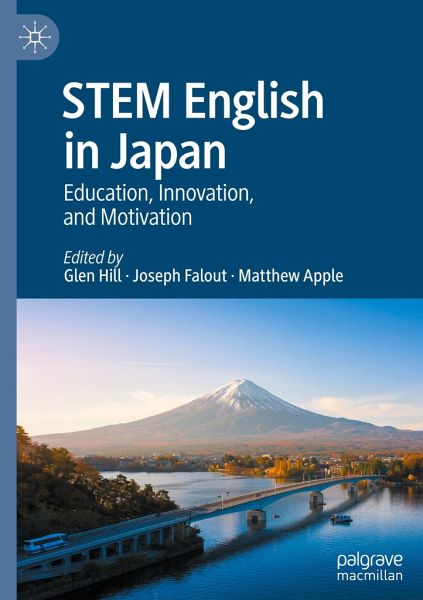
STEM English in Japan
Education, Innovation, and Motivation
Herausgegeben: Hill, Glen; Falout, Joseph; Apple, Matthew

PAYBACK Punkte
57 °P sammeln!
This book focuses on Japanese science, technology, engineering and mathematics (STEM) students and their experiences of learning English. Students majoring in STEM face unique circumstances regarding their English language education. Despite the global use of English in these fields, the authors argue that Japanese STEM students fail to take advantage of coursework, extracurricular materials, teachers, peers, and other resources to raise their communicative abilities to a sufficient level for the workplace. This book offers insights into how STEM students can learn English more effectively and...
This book focuses on Japanese science, technology, engineering and mathematics (STEM) students and their experiences of learning English. Students majoring in STEM face unique circumstances regarding their English language education. Despite the global use of English in these fields, the authors argue that Japanese STEM students fail to take advantage of coursework, extracurricular materials, teachers, peers, and other resources to raise their communicative abilities to a sufficient level for the workplace. This book offers insights into how STEM students can learn English more effectively and purposefully. The chapters provide firsthand perspectives into the psychologies, educational programs, and future workplace situations of Japanese STEM students, who are the innovators, inventors, and researchers of the future. This book will appeal to applied linguists and language teachers wherever STEM English is taught.














